Future Cholera Outbreaks : South West Region On Its Marks, Set…
- Par Kimeng Hilton
- 21 sept. 2022 20:10
- 0 Likes
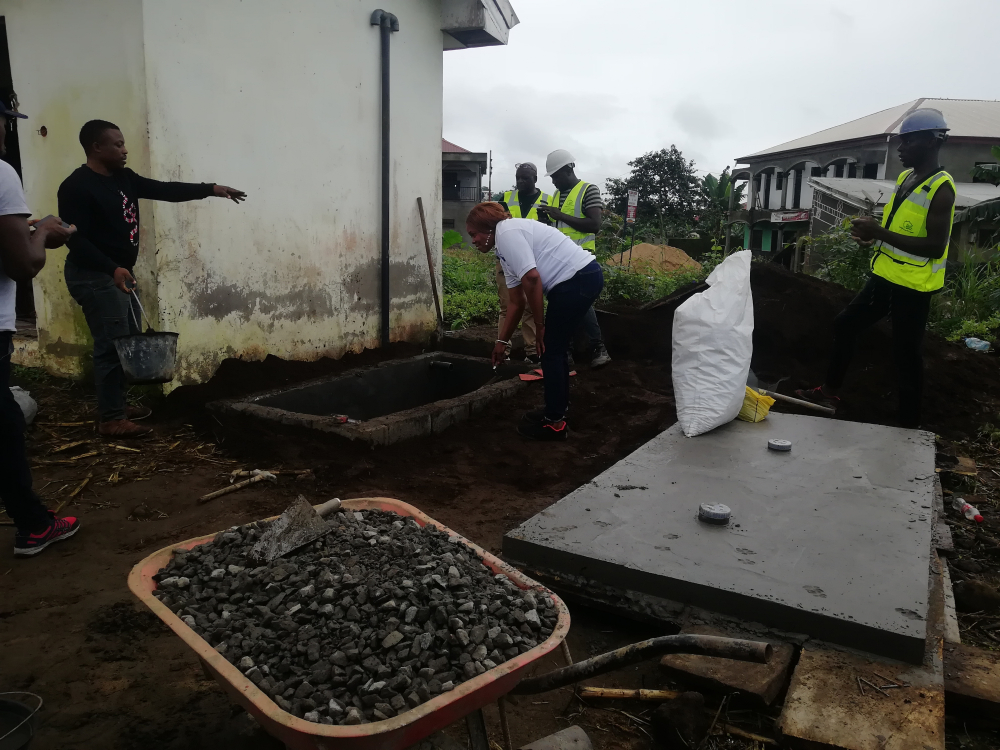
Some 30 stakeholders recently underwent training in Buea on the construction and maintenance of biologically-filtered toilets as part of a project funded by UNICEF.
The South West Region is still smarting from an unprecedented cholera epidemic that affected over 6,000 people, claiming 600 lives. Though it is more than 10 weeks now since the region recorded its last cholera case (as at September 16, 2022), the risk of another outbreak cannot be ruled out completely. Especially as the epidemic is still going on in the neighbouring Littoral Region.
UNICEF Financing
As part of response measures against the cholera epidemic, the United Nations Children’s Fund, UNICEF initiated a project to construct 40 biologically-filtered or biofil toilets in some affected health districts in the South West Region. The implementation process involves the training of some key stakeholders in the Water, Hygiene and Sanitation domains. It is in this wise that 30 participants took part in a capacity-building workshop from September 13-16, 2022 in the Pan-African Institute for Development, West Africa, PAID-WA Buea. Under the patronage of the Governor of South West Region, Bernard Okalia Bilai.
Cholera, Really Dangerous!
“For every 10 cases of cholera in a community, if not properly treated, five of them will die. That is how dangerous it is. To fight cholera appropriately, we must address the issues of toilets, water, hygiene and sanitation, and open air defecation. Now that we don’t have any case of cholera in the region, it is the opportunity to start addressing these predisposing factors,” explains Dr. Agwe Samuel, the South West Regional Coordinator of the Centre for the Fight Against Epidemics and Natural Disasters. He is also Assistant Incident Manager for Cholera Response in the South West Region. And oversees the United Nations Children’s Fund, UNICEF-sponsored cholera response project in the South West Region.
On Red Alert!
“We are not off the hook yet, but we are on alert for any outbreak. With current cholera cases in Douala, and with people travelling from Buea to Bonaberi, Douala every day, it takes just 30 minutes to bring in a contamination. This is the time to prepare for the next outbreak,” Dr Agwe cautions. “Cholera is not just an issue for the Ministry of Public Health. It concerns the community and society as a whole. Cholera is like pregnancy that cannot be hidden. When things do not go well in a community, it can manifest in the form of cholera. We urge stakeholders like councils to collaborate with the Ministry of Public Health to fight cholera,” Dr Agwe pleads.
Toilet Construction Begins Next Month
Meanwhile, the calendar for the construction of the toilets is as follows: October 2022, 10 toilets in Buea Council; November 2022, 10 toilets in Tiko Council and in December 2022, the remaining 20 toilets will be constructed in Limbe City Council. “In Limbe, we have directed that priority be given to Dockyard and Downbeach neighbourhoods. We have 5,000 fishermen in Dockyard with only one non-functional public toilet. A lot of roast fish is Dockyard. In the evening, the fishermen climb into their canoes and defecate into the ocean! Only for the counter-waves to flush the water and fish back to the beach! This is the same fish customers consume with relish! We want to this practice to end,” Dr. Agwe Samuel emphasised.
Integrated Waste Treatment
According to website literature on Biologically-filtered toilet or Biofil Toilet Digester, it is an innovative on-site waste water treatment option offering integrated treatment of sewage; with minimal risk to the environment and public health. It functions by providing an enclosed environment for the aerobic decomposition of faeces, including toilet paper and degradable material. Oxygen inflow ...
Cet article complet est réservé aux abonnés
Déjà abonné ? Identifiez-vous >
Accédez en illimité à Cameroon Tribune Digital à partir de 26250 FCFA
Je M'abonne1 minute suffit pour vous abonner à Cameroon Tribune Digital !
- Votre numéro spécial cameroon-tribune en version numérique
- Des encarts
- Des appels d'offres exclusives
- D'avant-première (accès 24h avant la publication)
- Des éditions consultables sur tous supports (smartphone, tablettes, PC)






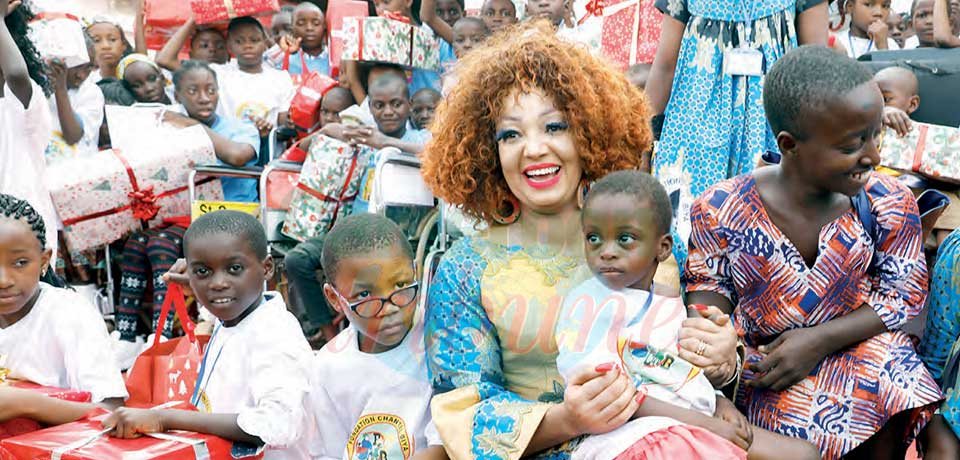
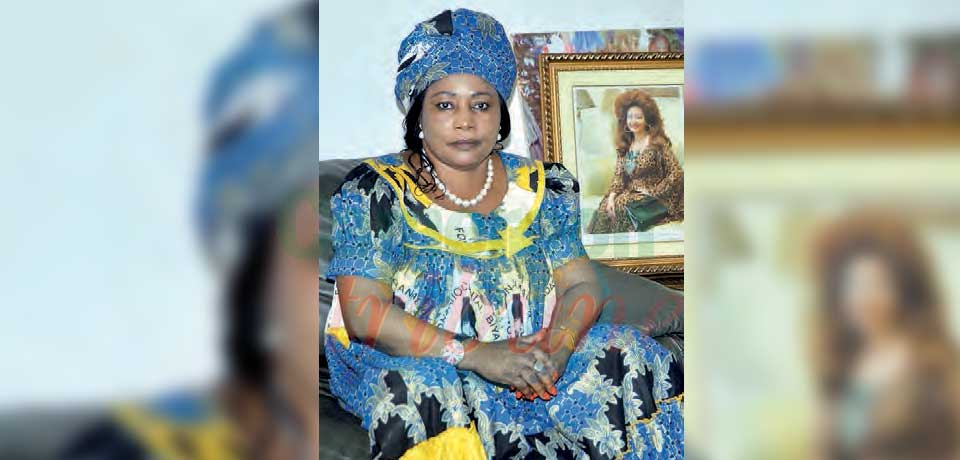
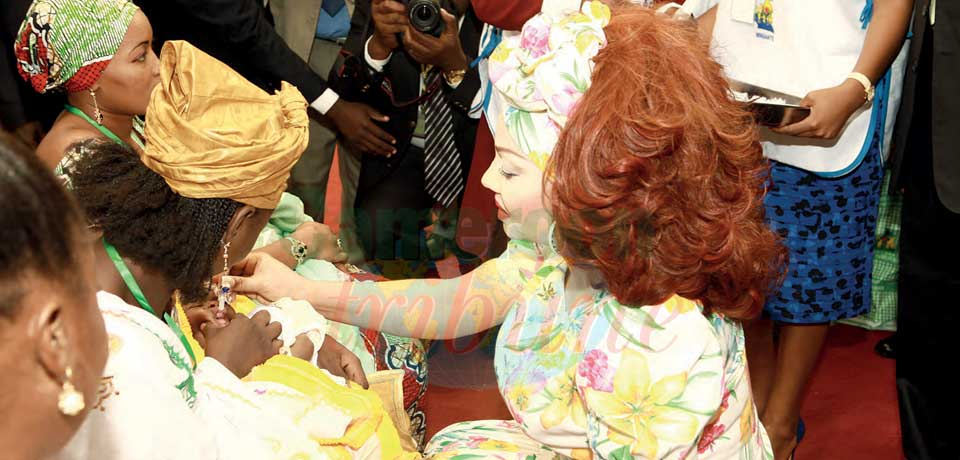
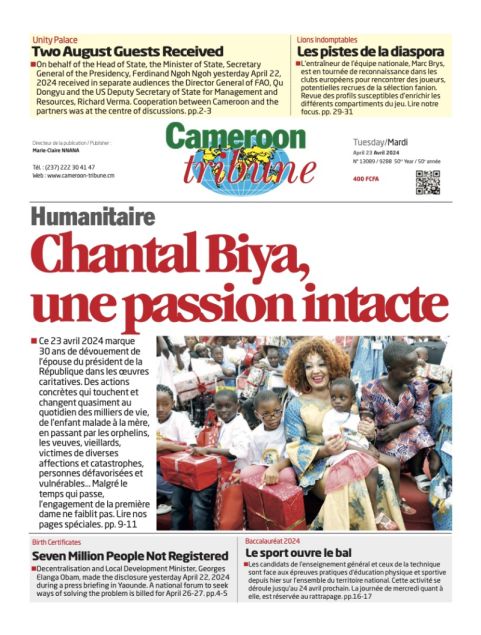




Commentaires